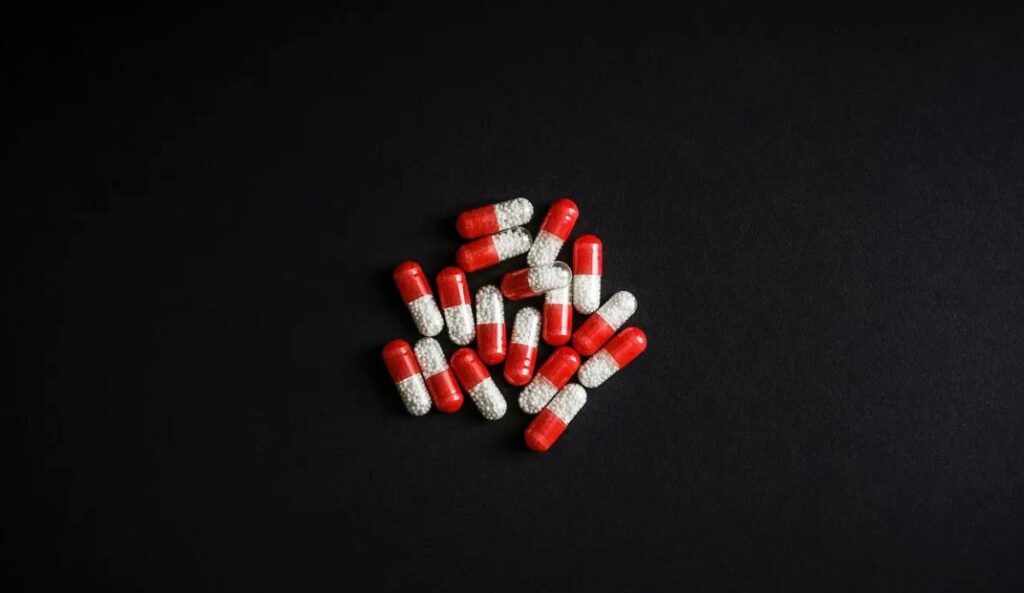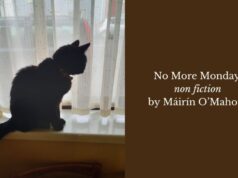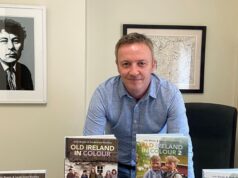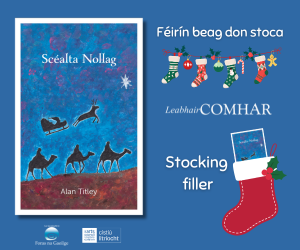
A Difficult Diagnosis, by Kevin Higgins
I have been in the Haematology Ward at University Hospital Galway four weeks tomorrow.
We all have our own blue and white rooms, with en suite bathroom. Every patient in here has some type of blood cancer. From being the arrogantly healthy thirty something who first became writer-in-residence at this hospital in 2007, I have been more at the mercy of others here than at any other time in my life.
I have had to be washed, taken to the bathroom, and for much of the time—though that is changing now—I have been on twenty four hour oxygen.
I am on a milder, more risky, regime of chemo than the preferred one for my condition: Acute Myeloid Leukaemia, one of the fastest acting cancers and deadly for many. My chronic autoimmune condition, sarcoidosis, prevents me from getting the recommended, very harsh, variety of chemo for this condition. It would, the consultant told me, almost certainly give me a chest infection which would put me on a respirator which I would likely never get off.
The chemo I am on, myself and my wife were very honestly told, does nothing at all for about one in three of the people who are given it. If I turned out to be one of those unlucky one in three, we could be talking about, the consultant said, “weeks”.
The one thing that has not changed, indeed it has become even more the case, is that the way I negotiate my way along the long, narrow, rocky path I must now tread, is by writing poems to try and make sense of it as it goes on.
I wrote this poem a couple of days after that darkest hour chat myself and my wife Susan had with the consultant.
On Being Detained At A Medical Facility Four Minutes From Your Own Home
Something is happening in your marrow.
It’s D-Day, Gettysburg, Kursk – all of those.
Life is potentially short and savage
but extremely valuable.
Your bloodstream is wild
with uric acid and exploding blast cells.
It is over a fortnight since you went outside.
“This is a very difficult diagnosis.”
“These are pills we give to oncology patients.”
“Leukemic cells”, a young doctor says,
matter of fact, in a bright blue room.
Another doctor, another room,
the word “palliative” is dropped
like a tablet into a glass.
There is a first time for every word
and a last.
And you’re not dead yet.
Twenty four hour oxygen.
You realise the song on the soundtrack
on the TV series you’re watching
is Highway To Hell
and totally inappropriate,
so turn it up louder.
At the window:
the University tower, the Cathedral.
Your everyday familiar
now alien as a postcard
of some German Christmas cake of a town,
abstract as your own front door
and its hallway,
down which you hope to again walk.
This is a difficult diagnosis.
Endstage: pain, delirium, bleeding.
But you’re not dead yet,
and can’t believe everything
you read on the internet.
There is hope
but you’re as afraid of it – almost –
and the lies it might tell you
as you are of its all consuming absence.
In my political and satirical poems, I am, it is said by some jittery conformist souls, sometimes a little too brutal with the truth. In poems about my health I also try not look away from the bad stuff.
Over the past month, I have looked the possibility of my own extinction in the eye. But as the poem says, there is hope. I seem to be responding to treatment. My first round of fifteen days of chemo is done.












